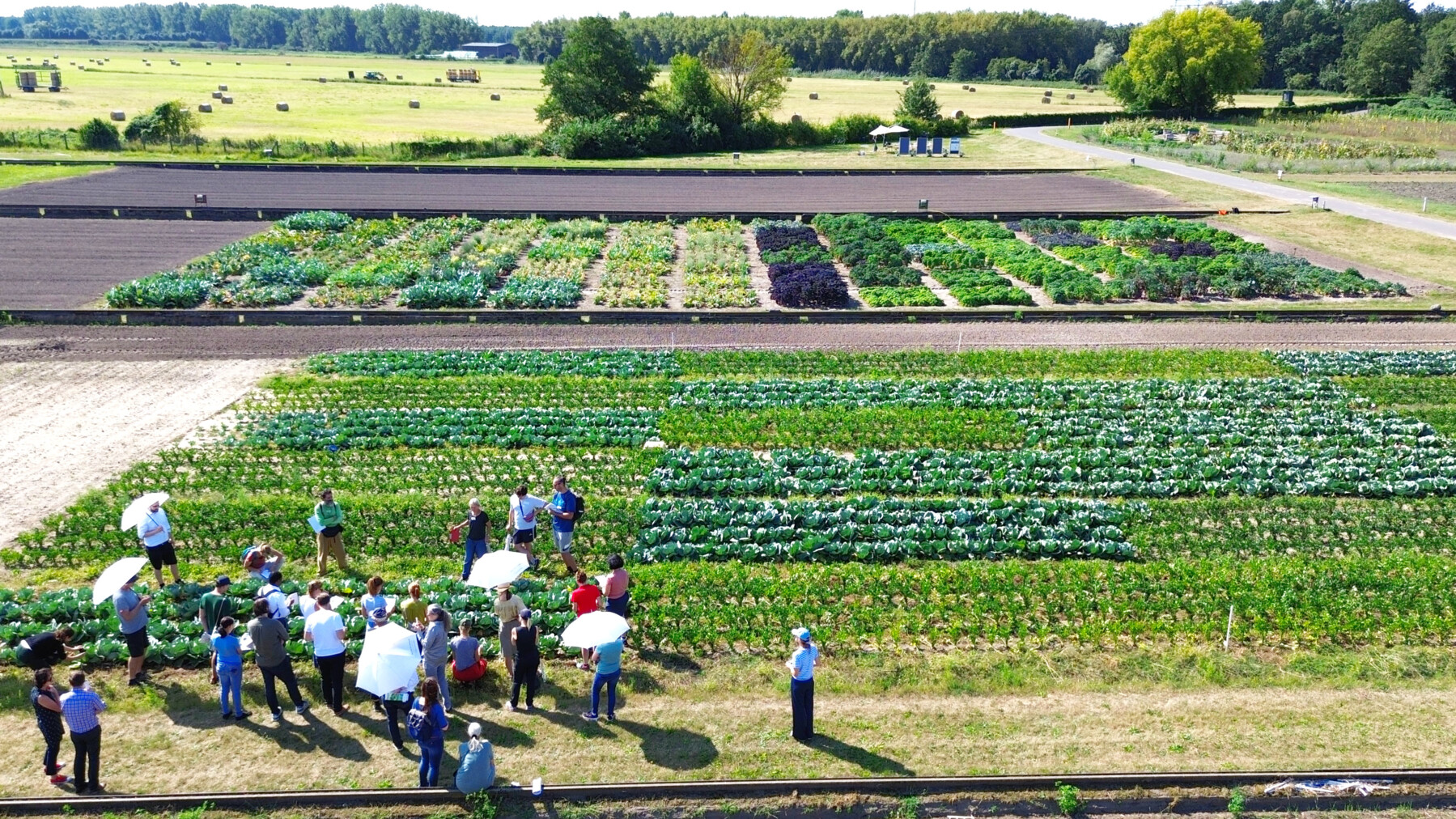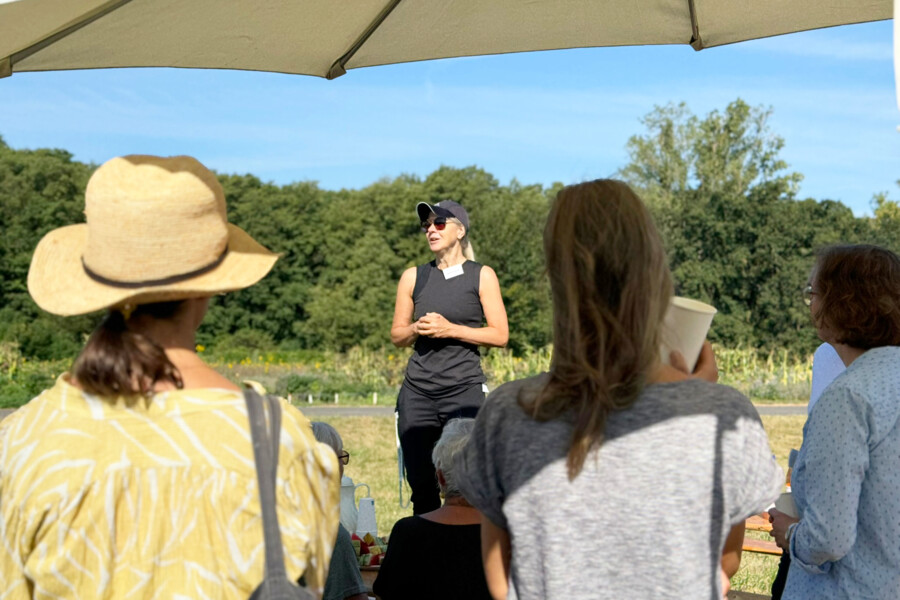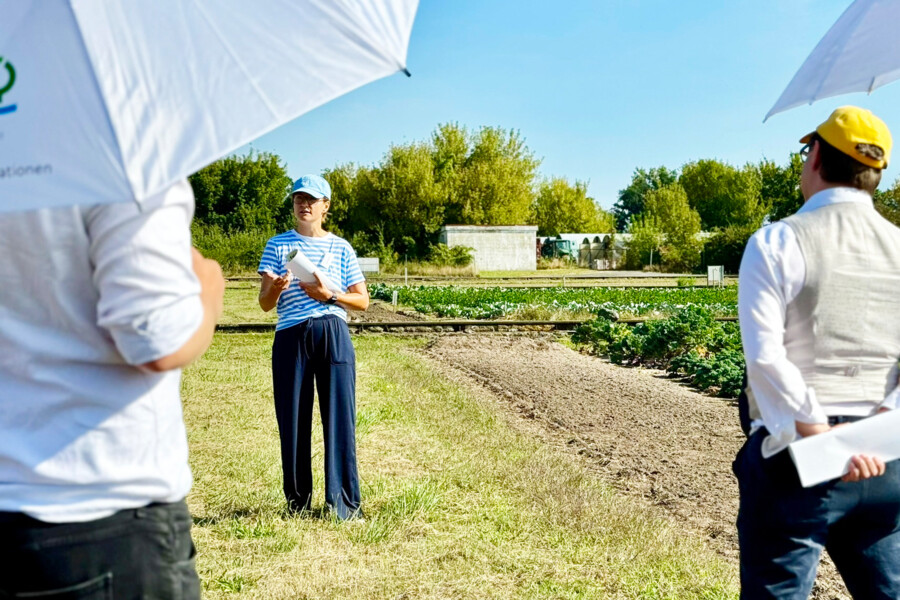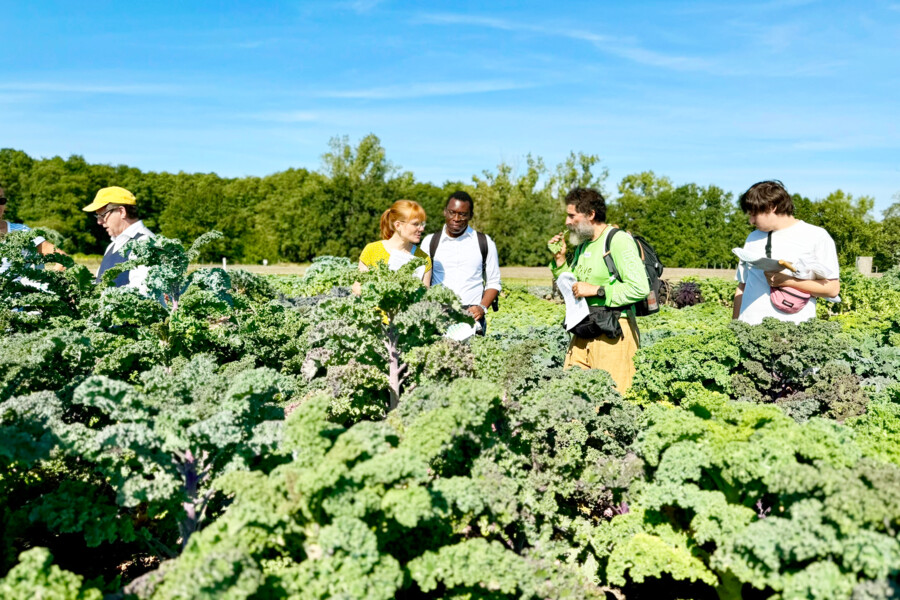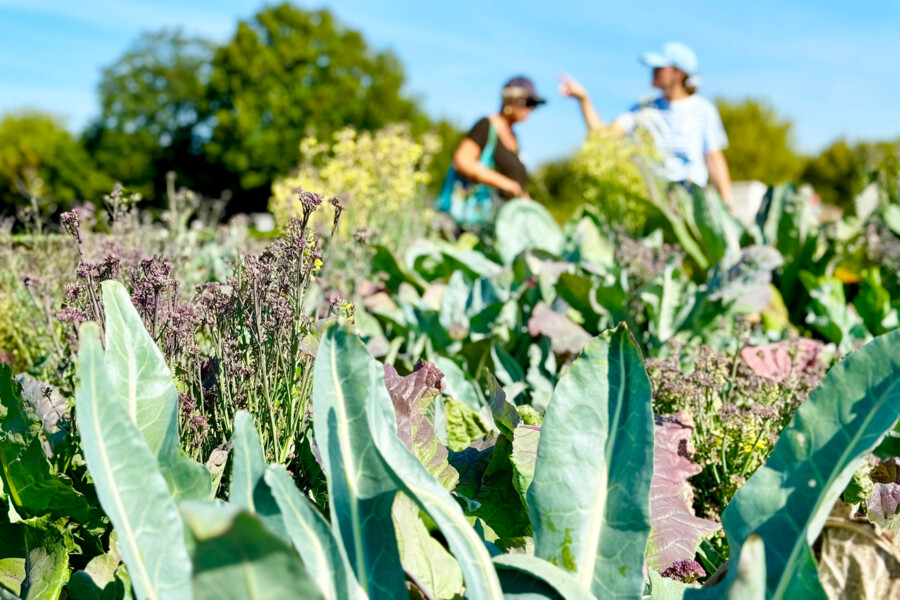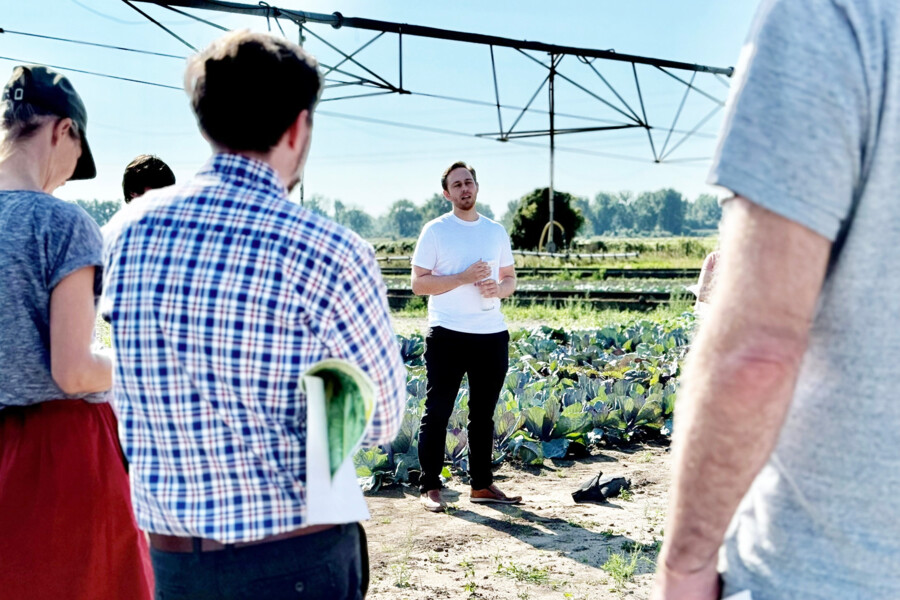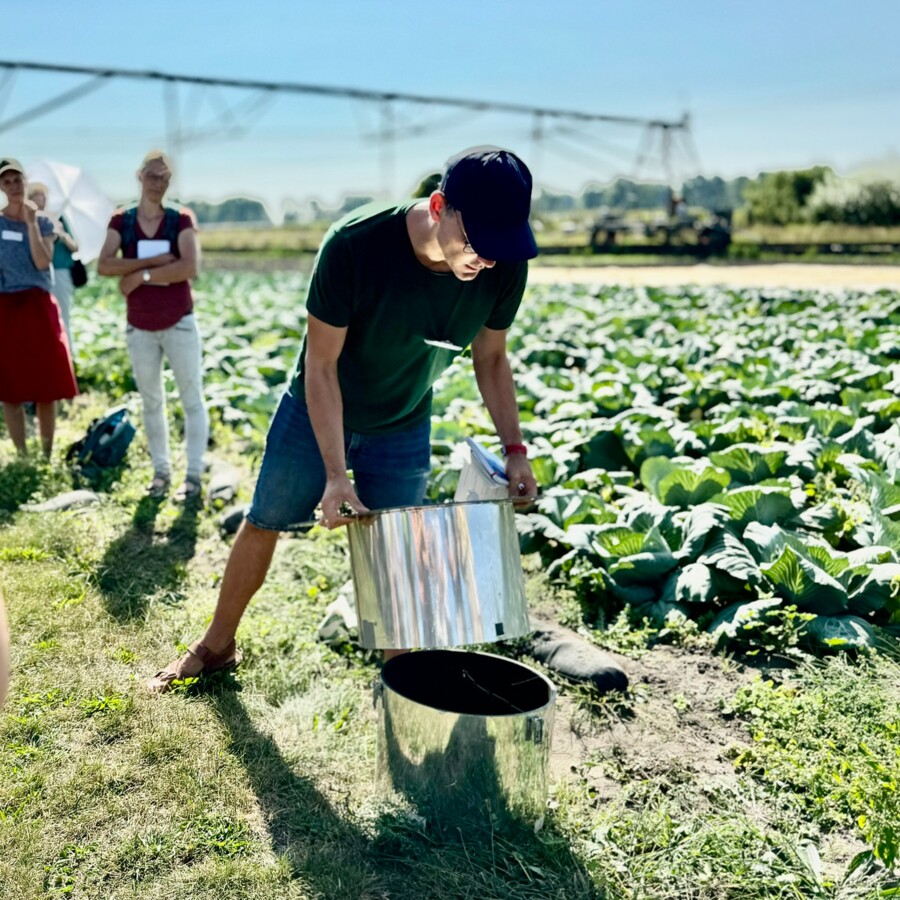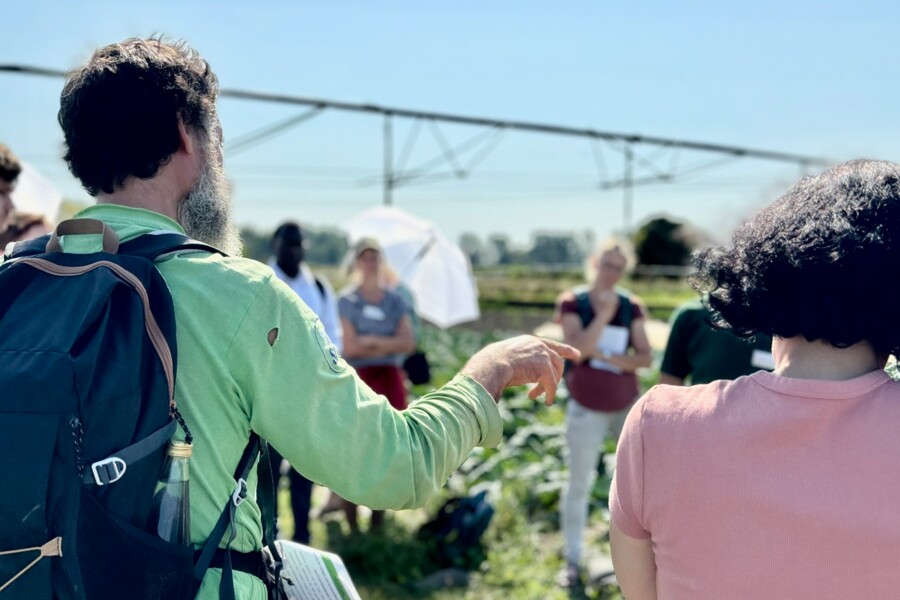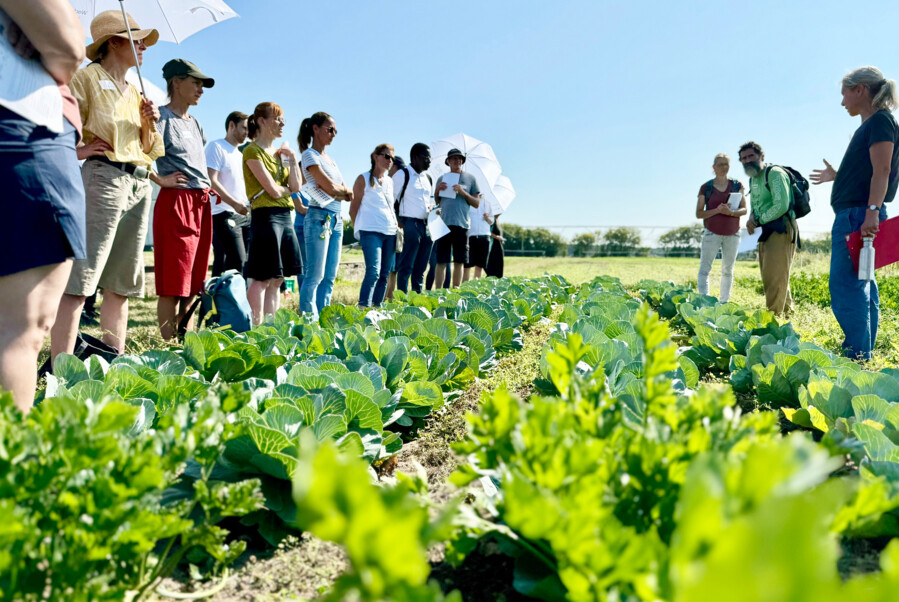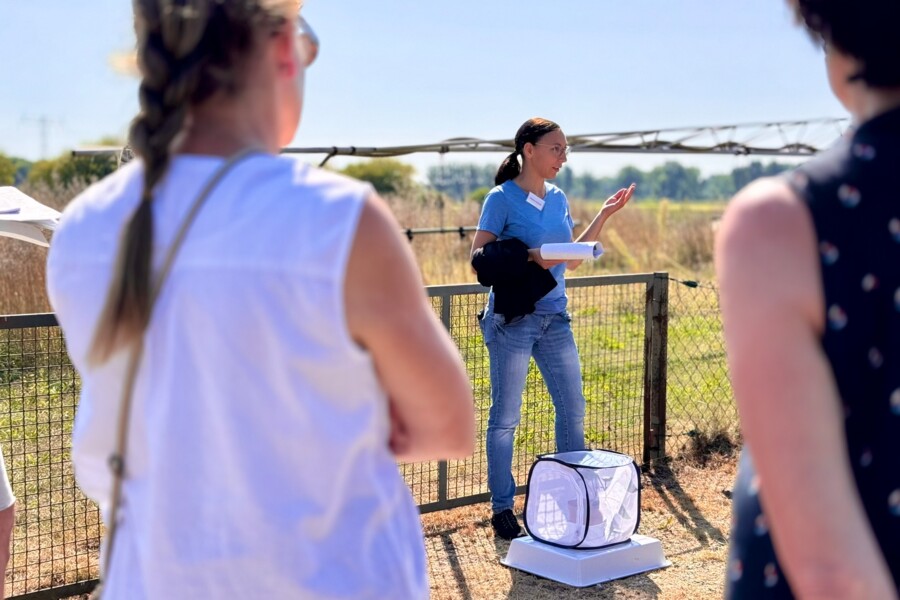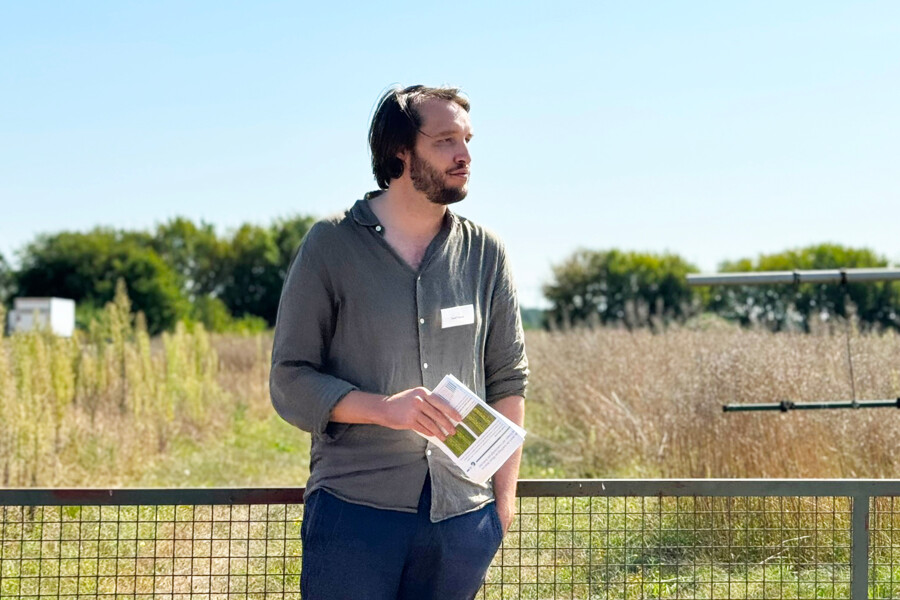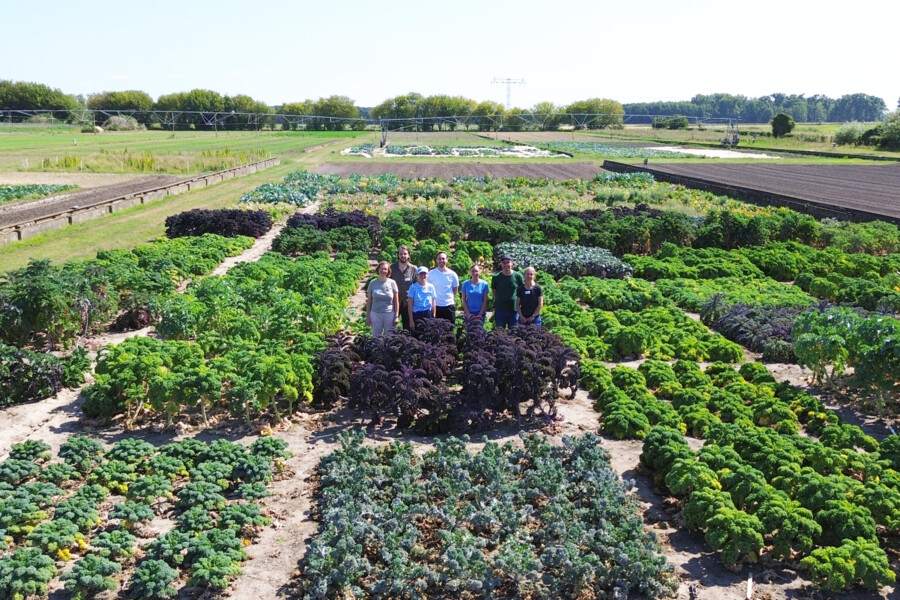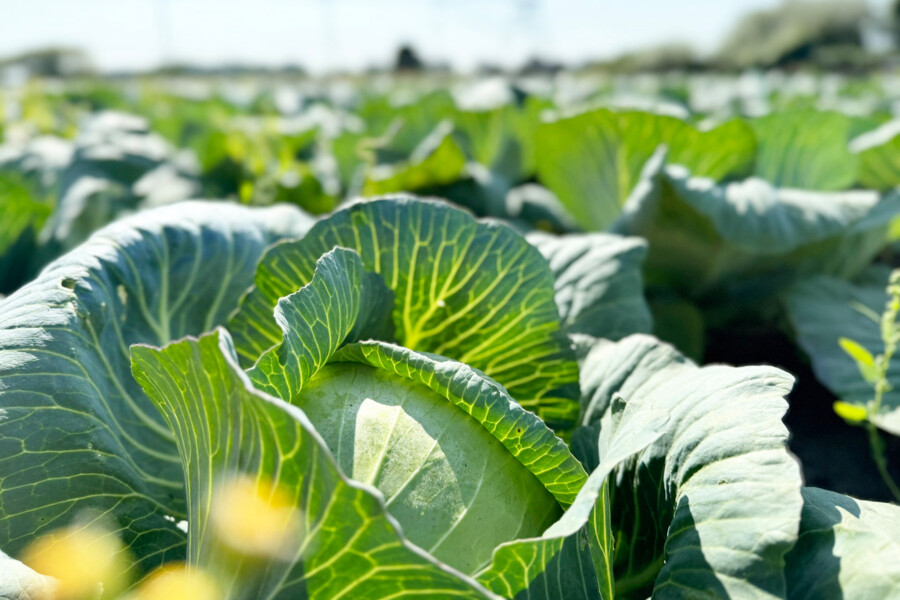Kale-leidoscope of Research: First open cabbage field day at the IGZ
Last week, the Leibniz Institute of Vegetable and Ornamental Crops (IGZ) organised an open field day on the topic of cabbage. The event on the IGZ trial field attracted numerous participants including colleagues from horticultural research and experts from regional horticultural associations. The deputy director of the IGZ, Prof Monika Schreiner, opened the field day and introduced the attendees to the topic with a brief presentation of the research institute.
The first stop on the tour was dedicated to the nutritional importance of the plant species Brassica oleracea. Here, Vanda Púčiková presented the ‘SharpGreens’ project, which is investigating the nutrient diversity in cabbages and its contribution to healthy diets. On the demonstration field with 50 different varieties of kale and cauliflower, the participants were able to experience the wide range of colours, shapes and tastes of, for example, the ‘semi-hard Moosbach winter’ and the ‘Lippische Palme’. Nicolas Proksch then presented the ‘VEGAMIN’ project, which studies the formation of amines in different cabbage cultivars and aims to identify the enzyme responsible for this.
On the tour’s second stop, Dr André Sradnick explained the problem of high nitrous oxide and ammonia emissions caused by harvest residues in vegetable cultivation as part of the ‘NEmGem’ project and demonstrated the sampling in the field. The project is investigating how these emissions can be reduced by removing and valorising white cabbage residues, for example, by composting, ensiling and fermentation. Katia Heistermann continued with a presentation on the challenges of conservation tillage in organic vegetable production. In the ‘BioStripPlant’ project, she is testing the use of rye as an in-situ mulch and clover as a living mulch in organic white cabbage cultivation, among others.
The fourth stop of the tour focussed on the interaction between plants and insects. Dr Rebekka Sontowski presented her research on sustainable strategies for controlling the cabbage fly in oilseed rape. Axel Touw then explained his research on the effects of different soil types and recycled fertiliser on pollinators and pests in white mustard, which are being analysed as part of the ‘Green Cycle’ project.
At the end of the open field day, the participants were able to exchange ideas and explore new opportunities for cooperation over a glass of freshly prepared broccoli smoothie.
The first IGZ field day on the topic of cabbage was a valuable experience for all participants. The projects presented were met with great interest and led to lively discussions. We are already looking forward to continuing the series next year.
